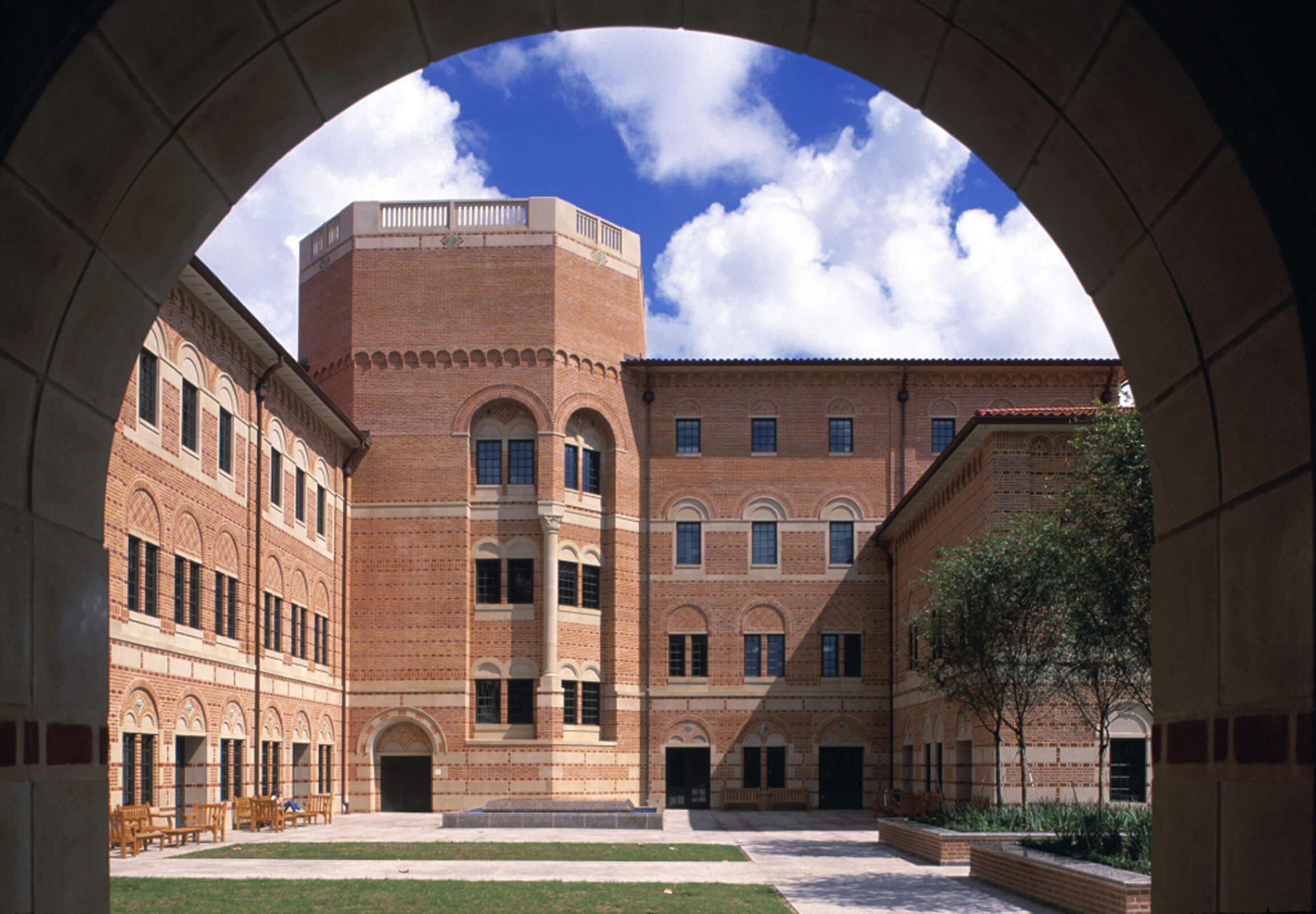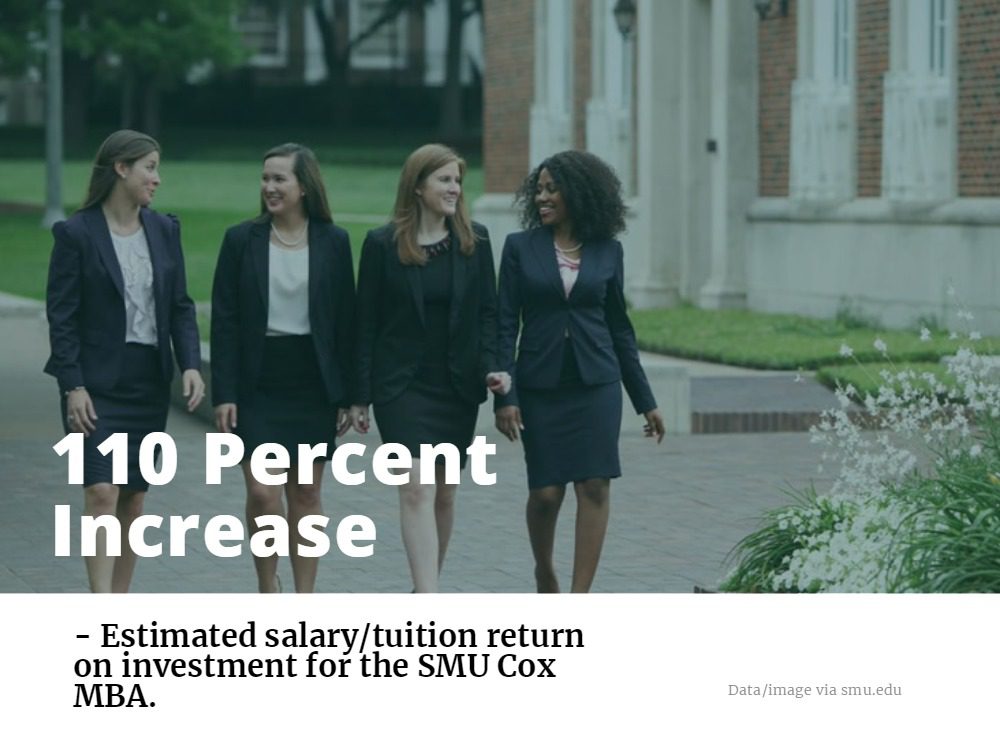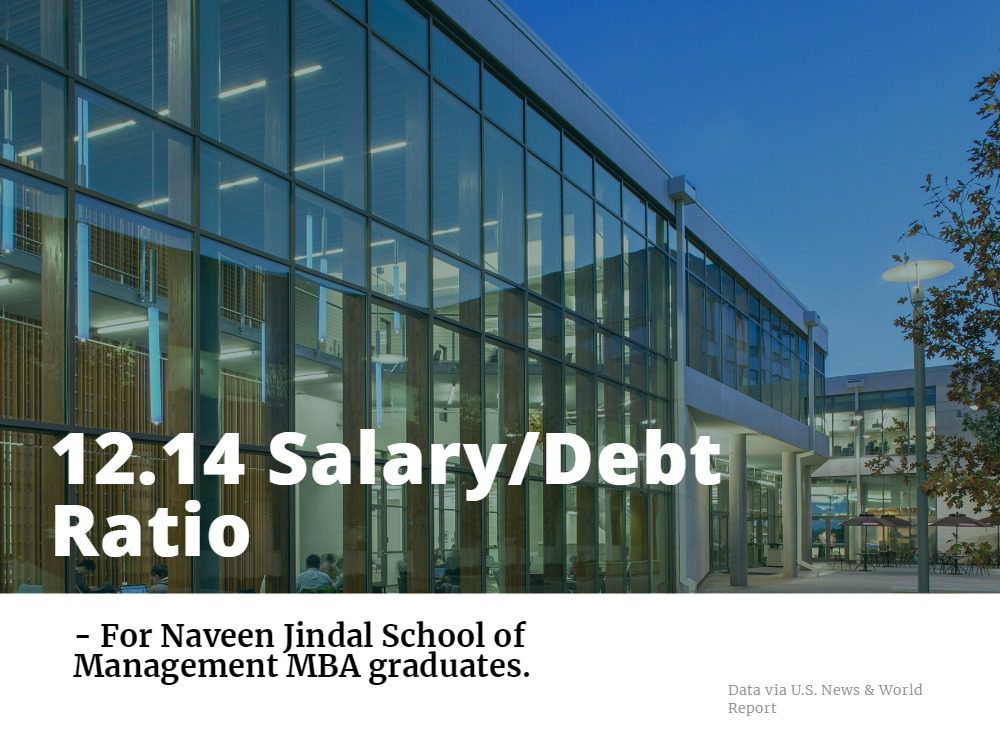Harvard Talks Managing Disorganized Employees, and More – Boston News

Let’s explore some of the most interesting stories that have emerged from Boston business schools this week.
How to Manage Someone Who Is Totally Disorganized – Harvard Business Review
Disorganized employees can be wellsprings of frustration, but there are ways to help them better understand how disorderly tendencies impact others.
Harvard Business School‘s Rebecca Knight recently discussed strategies in HBR, addressing root behavior causes and ultimately develop better systems to manage workloads.
“’Is this person’s approach creating negative outcomes, or is it just a style difference?’ If your report indicates ‘disorganized but otherwise reliable, you may have to back off.'”
Rosie Perez (not the actor), Lead Financial Officer of Global Consumer Business Planning and Analytics at American Express, adds, “It takes a lot of time to change ingrained behavior, but it can be addressed. Most importantly, as leaders, it is our job to help coach our colleagues [with] constructive and pointed feedback.”
You can read more about the research here.
Bye-Bye Ivory Tower: Innovation Needs an Ecosystem to Thrive by Tracy Mayor – MIT Sloan Ideas Made to Matter
Innovation is not exclusively indigenous to Silicon Valley. We continue to see exciting developments in London, Tel Aviv, New York, Boston, China, Nigeria, Ghana, and South Africa. However, despite the benefits of globalization, the world of innovation is not wholly flat.
New MIT Sloan research has determined that there are geographic hotspots, or “innovation ecosystems,” where ideas move more easily from inception to impact.
Phil Budden, a Senior Lecturer Specializing in Innovation and Entrepreneurship, notes how the traditional “triple helix” that has long driven innovation—university, government, and corporations—is now joined by two additional players: entrepreneurs and risk capital.
“It’s so important to have innovation-driven entrepreneurs involved. They’re producing the companies of the future. You can’t just have today’s companies [in an ecosystem], you need to have those leaders who are going to produce future companies.”
Fiona Murray, Associate Dean for Innovation, urges corporations to take advantage of startups and entrepreneurs to help experiment on their behalf.
“What these startups tend to do very well is define, order, and test their assumptions through a series of what we call ‘innovation loops. So, one of the benefits of going from a purely internal research and development process to working externally is that you can really rely on the universities and startups in an ecosystem to do that experimentation for you.”
You can read more about global innovation here and watch the recent discussion below.
Joy Field Garners Top Award from Decision Sciences Institute by William Bole – Carroll School News
BC Carroll School of Management Associate Professor of Operations Management Joy Field has received the highest honor bestowed by the Decision Sciences Institute (DSI), a global society of more than 1,800 scholars dedicated to fostering knowledge for better managerial decisions.
Field was named the 2018 co-recipient of the Dennis E. Grawoig Distinguished Service Award, named for a founder of the 50-year-old Institute. The other recipient was Morgan Swink of Texas Christian University.
DSI President Johnny Rungtusanatham of Ohio State University asserts, “This is a highly competitive distinction awarded to those who have made a continual impact on the Institute and the disciplines it serves.”
Field reflected on her two decades of involvement with the Institute. “DSI has been a major contributor to all aspects of my professional development—publishing, teaching, and service—and I am delighted to have been chosen to receive this award from among the many colleagues who have also contributed so much to DSI.”
Find out more about the recent award here.
The Best Healthcare Management MBAs in Texas

As the nation’s second-largest field of employment, healthcare is a fast growing and rapidly changing industry expected to be worth trillions in the near future. A job in healthcare can represent any number of opportunities from working in a hospital to working for a government agency, insurance organization, consulting firm, group practice, pharmaceutical company, or biotechnology firms. In each of these areas, there’s a massive need for well-qualified individuals who can respond to critical problems. That’s where a healthcare management career can be valuable.
As a healthcare manager, you’ll be responsible for managing and coordinating health services while working closely with physicians and administrators to best represent your facility. It’s a rewarding career field with a positive job outlook—employment is expected to grow much-faster-than-average, according to the Bureau of Labor Statistics.
If this sounds like the career for you, one of the first steps is to earn your Healthcare Management MBA. A Healthcare Management MBA provides students with in-depth expertise on the unique elements required to work in the healthcare industry.
As for where to earn your degree, here are the best Texas healthcare MBA programs.

Dallas
Naveen Jindal School of Management – University of Texas at Dallas
In Dallas, the Naveen Jindal School of Management is known for its healthcare focus. Not only does the school offer a Master of Science in Healthcare Leadership and Management, which is a flexible evening program that can be completed in 18 to 24 months, but MBA students can also choose the Healthcare Leadership and Management concentration. This MBA concentration prepares students for leadership positions in healthcare and is a cross-functional and industry-focused option.
What makes the Healthcare Management MBA concentration stand out at Naveen Jindal is the fact that classes are taught by faculty and healthcare executives who have the specialized expertise and experience needed to train up-and-coming graduates. In addition, students can participate in the Healthcare Management Association (HMA) to cultivate industry experience, networking opportunities, and healthcare resources. The school also offers a Healthcare Management Executive MBA for current physicians who are looking to expand their skillset.
Hankamer School of Business – Baylor University
At the Baylor University Hankamer School of Business in Dallas, there’s a specialized MBA in Healthcare Administration. This degree path is offered in conjunction with the Robbins Institute for Health Policy and Leadership and gives students the opportunity to gain an interdisciplinary foundation in health services and business. The MBA program is nationally recognized, ranked 17th in the nation in 2016 by the U.S. News & World Report, and ideal for students interested in a healthcare career.
What makes this MBA program unique is that it includes a seven-month paid Executive Residency with a leading progressive health organization. During this residency, students receive guidance from well-qualified, practicing healthcare executives who give them the opportunity to apply and test their knowledge. Also, students can apply for the Executive Healthcare MBA program in Dallas and participate in the Future Healthcare Executives (FHE) student organization.
Neeley School of Business – Texas Christian University
Another opportunity for healthcare-minded MBA students in Dallas is the Healthcare MBA at the TCU Neeley School of Business. This program is designed for current healthcare professionals or individuals who are looking to enter the healthcare industry. It’s offered in partnership with the University of North Texas—Health Science Center and provides an in-depth healthcare focus.
What makes this program unusual is that students can choose a standard MBA (48 credit-hours) or an accelerated MBA (36 credit-hours) depending on their experience in business. In either case, MBA students completed 10.5 credit-hours of healthcare-specific courses as well as 9-10.5 credit-hours of additional business or healthcare electives. Some of the specialized courses include:
- Healthcare in the U.S.
- Population Health
- Legal Aspects of Healthcare
Houston
Rice University – Jones Graduate School of Business
At Rice University in Houston, there are multiple opportunities for MBA students at the Jones Graduate School of Business to develop their healthcare experience. Specifically, the school created a healthcare program that offers practical learning options and multiple healthcare electives. Some of those electives include U.S. Health Care Management, Health Care Strategy, and Health Care Operations Management.
As full-time MBA students, there’s the option to choose the health care concentration, which includes 12 credits, out of 24.5 available, focused specifically on a career in healthcare. Its unique curriculum prepares MBA students for a variety of healthcare settings including pharmaceutical, biotech, and insurance as well as hospitals and private practices. There are also many other ways to learn about healthcare at Rice University including speaker series, panel discussions, and multiple events.

The Jones Graduate School of Business at Rice University offers a wealth of healthcare MBA options, including a MD/MBA dual degree.
Cameron School of Business – University of St. Thomas
In Houston, there’s also an MBA in Health Care Administration offered at the Cameron School of Business. This program is offered in conjunction with Texas Woman’s University (TWU) and gives students the opportunity to obtain the fundamental health services management skills required for a successful career. In addition, there’s an opportunity for a dual Master of Healthcare Administration (MHA) and MBA degree. As part of the program, students take courses at both TWU and UST.
Finding the Best Return On Investment for Your MBA: Dallas

Choosing the right MBA program can feel overwhelming. With nearly 800 accredited business schools in the United States, the idea of wading through the information on every program is intimidating to say the least. A variety of features, such as a school rankings, internship opportunities, and an extensive alumni network may be huge factors where you choose to earn your master’s. But one of the most important variables to consider is a program’s return on investment (ROI). It is essential to pick a school with an enviable ROI, as this will ensure that the time and money you dedicate to earning your MBA are not for naught. Given the considerable cost of higher education, it is important to attend the school that will give you the most bang for your buck.
The Best Dallas MBA Return on Investment
Cox School of Business – Southern Methodist University
At the SMU Cox School of Business, students can expect an admirable rate of return on the cost of education. The tuition rate of $45,976 per year for the two-year program is among the most enviable in the U.S. The average graduating salary for MBA’s was $96,587, which is more than double the yearly cost of tuition. This school is also ideal for students hoping to global perspective, as students at Cox have the opportunity to participate in an international MBA exchange program, which allows them to continue their education in Latin America, Europe, Australia, or Asia. Simply put, SMU Cox doesn’t just provide one of the best Dallas MBA return on investment opportunities, but one of the best in the country overall.

Hankamer School of Business – Baylor University
Baylor’s Hanker School of Business is another excellent option for students seeking a respectable ROI. The full-time program can span from 16 to 21 months, with a tuition of $20,597 per semester (over about three to four semesters, depending on course load and core requirements met during undergrad). According to Hankamer’s website, the average starting salary for MBA graduates in 2017 was $73,314. Additionally, Hankamer’s Career Management team is nationally-ranked, and can provide extra support for students seeking help with job placement.
McCombs School of Business – University of Texas at Austin
The MBA program at the McCombs School of Business currently costs $30,750 per semester, bringing the total tuition to about $123,000. The cost will is steeper for non-residents (closer to $189,000). Though the cost of tuition at McCombs is nothing to sneer at, neither is the reward. In fact, the most recent MBA class had an impressive average starting salary of $117,068. McCombs, which is also one of the largest business schools on this list, also has an extensive alumni network, which includes the CEOs of Southwest Airlines (Gary C. Kelly) and Heinz (William R. Johnson).
Naveen Jindal School of Management – University of Texas at Dallas
Like many of the schools we mentioned on this list, the Naveen Jindal School of Management has a solid track record when it comes to ROI. Tuition for the full-time MBA program is just $32,998 for in-state residents and $64,332 for non-residents. In addition to the reasonable cost, the school’s website states that 80 percent of students receive scholarships that cover an average of 45 percent of the total program cost. In 2017, U.S. News & World Report stated that the school’s MBA program, “… had the highest salary-to-debt ratio among ranked business schools.” According to the article, average starting salary for graduates (of those who were employed within three months of graduation) was $86,644.

Neeley School of Business – Texas Christian University
At TCU’s Neeley School of Business, the average starting salary for the most recent graduates of the full-time MBA program was $93,093, surpassing the total tuition of $88,020. Moreover, Neeley boasts a 92 percent employment rate 90 days after graduation. Recent graduates have taken jobs at renowned companies like Ernst & Young and IBM. In addition to standard core classes, Neeley introduces a great deal of experiential learning into the curriculum. At the end of their first year, students participate in an Integrative Project that offers them the opportunity to apply their skills to real-world business obstacles via a week-long simulation.
MBAs Profit As Paid Consultants through TCU Neeley & Associates

At the Texas Christian University Neeley School of Business’ Neeley & Associates, MBAs have the chance to gain more than just hands-on business experience as paid consultants for major companies.
The Neeley & Associates are a group of MBA student consultants who can earn both business experience and a paycheck by offering insights and strategies for major companies facing business challenges. The students act as principle consultants, but are are provided with ample resources and guidance in the form faculty, staff, and professional consultants.
The program benefits both students looking to gain experience and the companies, who are able to find affordable and innovative solutions to their challenges. Past clients have ranged from PepsiCo. to Nike to GM Financial, and all of the consulting is paid work.
Many students have since been hired or offered internships at the companies for which they served as consultants. Others simply found that the consulting experience on their resume gave them a competitive edge on the job market. “Few candidates have ever done a consulting project. It gave me examples of how I creatively overcame a difficult challenge for a major company,” Greg Goolsby said of his Neeley & Associates experience. Graduating with his MBA in 2008, Goolsby currently serves as the senior licensing and acquisition manager at FUNimation.
Ed Riefenstahl, Director of Experiential Learning at Neeley, also commented on the many benefits the program has for students. “In addition to applying new knowledge from the classroom, Neeley & Associates MBAs get to experience and develop skills that are applicable and beneficial to the rest of their careers.”
Part-Time MBA Battle: Houston v. Dallas

Among the bustling metros of the Lone Star State, Dallas and Houston are the biggest. Locals from the Houston and Dallas metros are die-hard about their towns, and their business schools take their MBA programs seriously. Both cities offer plenty of part-time options to prospective MBAs, so let’s take a deeper dive.
Location
While Houston and Dallas are only about four hours away by car, each metro offers completely different living experiences. As far as weather goes, if you dislike humid climates, Dallas may be the location for you. If you love being by the water, Houston may be up your alley—though the city, unfortunately, is more at risk for tropical storms and hurricanes.
Houston is statistically the more expensive city to live in, but not by a significant margin. According to Numbeo, a database of user contributed data about cities, you would need around $4,242 in Houston to maintain the same standard of life that you can have with $4,000 in Dallas, assuming you do not own a home. As far as entertainment goes, it’s really a tie: Both metros boast great restaurants, shopping, sports entertainment, and nightlife.
Here are a couple more quick stats comparing Houston and Dallas, courtesy this awesome infographic from SpareFoot:
- Houston is the 5th best US city for good jobs, Dallas ranks 18th.
- Houston is the 5th best US city for job seekers, Dallas is 6th.
- Dallas has the 13th lowest unemployment rate in the US, Houston is 18th.
- Dallas has the 9th most affordable housing marketing in the US, Houston is 8th.
Not every MBA candidate can manage a full-time degree program. So many business school students continue to work throughout their studies, balancing a job and graduate school through a part-time MBA program. Many of these programs take place in the evenings and on weekends, allowing for flexibility along with continued professional growth.
Dallas Part-Time MBA Programs
The following schools in the Dallas metro offer part-time MBA programs:
- Cox School of Business – Southern Methodist University
- Naveen Jindal School of Management – University of Texas at Dallas
- Neeley School of Business – Texas Christian University
- University of North Texas College of Business
- University of Texas at Arlington College of Business
The Southern Methodist Professional MBA features a flexible and modular curriculum that students can customize to their learning and future career goals. Students have the option to choose a concentration and a minor from nine subject areas, including: accounting, finance, general business, information technology and operations management, management, marketing, real estate and strategy, and entrepreneurship.
The estimated total cost of the aforementioned Professional MBA program is $93,696. This figure excludes costs such as books, materials, housing, or transportation. However, approximately 60 percent of students receive some form of financial aid, either need-based or consumer loans.
The Professional MBA program at the Naveen Jindal School of Business consists of taking two classes each semester, and classes are usually offered Monday-Friday from 4 to 10 p.m. The program is offered three different formats: a Evening Cohort, Flex, and Online. The Evening cohort option can be completed in 24 months, and allows the entire intake to experience the 30 required classes together. The Flex program lets students finish their degree on their own schedule, online and on campus. Similarly, the Online MBA offers plenty of scheduling options, but a limited choice of electives and concentrations.
Tuition costs depend on the amount of courses taken per semester and which track students are enrolled in. At UT Dallas, students pay lower per credit when taking more classes per semester. The estimated cost for tuition and fees for in-state residents in the Evening PMBA program is $42,347, and $78,449 for non-residents and international students. Tuition and fees for resident students in the online program is estimated at $49,531, with non-resident tuition at $84,016. Scholarship opportunities are available.
The Professional MBA at the Neeley School of Business meets twice a week in the evenings. The cohort-based program that can be completed in as little as 24 months or as many as 33 months—the amount of time it takes to complete the program depends on how students schedule their elective courses.
One year of the Texas Christian Professional MBA program costs an estimated $33,090, which includes tuition and other program fees. Books and other course materials are estimated at about $1,000.
Students in the University of North Texas MBA program have the option of taking courses on a full-time or part-time basis, and can earn a MBA degree in such areas as finance, health services management, marketing, logistics and supply chain management, organizational behavior and human resource management, strategic management, or business studies. Students completing the MBA in business studies also have the opportunity to complete a concentration in international business, library science and technology, real estate, or sustainability.
The UT Arlington Professional Cohort MBA structure is created for experienced professionals who want to continue to work full-time and follows the same 45-credit hour curriculum as the MBA flexible structure. The cohort structure allows students to complete courses in accelerated five or eight-week sessions, which allows students to complete their MBA in 24 months. This format is only offered at the Fort Worth campus. The estimated cost of the MBA program at the University of Texas at Arlington College of Business is $25,382.
Houston Part-Time MBA Programs
The following schools in the Houston metro offer part-time MBA programs:
- C.T. Bauer College of Business – University of Houston
- Cameron School of Business – University of St. Thomas
- Jesse H. Jones School of Business – Texas Southern University
- Rice University – Jones Graduate School of Business
- University of Houston – Downtown
The University of Houston Professional MBA program is a flexible program that takes 22 months to complete and consists of 48 credit hours. Students must complete 21 core credit hours and 27 elective credit hours.
Tuition costs at Bauer are estimated at $42,000 for Texas residents, $66,600 for non-resident students, and $72,000 for international students. Costs can change depending on how many classes a student is taking and their student status MBA students can get financial assistance in the form of student loans and scholarships, such as the MBA Bauer Excellence Scholarship. Students can receive up to $10,000 per year, qualify for in-state tuition (for nonresidents) and receive a two-year subscription to The Wall Street Journal.
The Cameron School of Business offers a flexible MBA that holds classes on the weekends and in the evenings. Students in the MBA program at Cameron are required to complete 36 academic hours: 27 hours are in core course and nine credit hours are elective courses.
The cost of the Cameron School of Business MBA program is $1,163 per credit hour. Students taking eight or fewer credit hours per semester are required to pay a $47 activity fee. Those students taking nine or more hours are required to pay $82. Students must also pay a $100 new graduate student fee and an $80 technology fee. Students are required to pay all fees every fall and spring semester.
The Texas Southern MBA program at the Jesse H. Jones School of Business provides a general management education to students who are looking to advance their current careers in business management, and can be taken in a full-time or part-time schedule. Part-time program students can complete their MBA degree over a flexible amount of time, depending on their availability to complete courses. All students complete courses over the fall, spring, and summer semesters.
The Jones MBA costs about $7,130.38 a year for in-state residents and $13,700.38 a year for out-of-state folks. Other fees such as room and board, transportation, books and other personal expenses are not factored in the cost of the program.
Rice University’s MBA for Professionals is a flexible program that offers an evening or weekend option to allow students to maintain their current work schedules. The traditional professional MBA is held in a lock-step format while the Extended Professional MBA program holds classes two evenings a week during the first semester and one evening a week after that. Students in this program can extend their education for three years or more, up to five, in order to better fit with their schedule.
The current tuition cost is $101,500 for the Evening and Evening Extended programs and $105,500 for the Weekend program. The tuition covers the complete 22-month schedule of coursework and is billed in 25 percent increments over four semesters.
The University of Houston Downtown part-time MBA can be completed in two or three years. Classes are offered in a hybrid form, with some classes taking place on campus and others online. Students may elect to pursue a “soft start” to their MBA, where students pursue their concentration classes first, or a traditional-start MBA students, where they take core classes the first year, followed by concentration classes in the second year.
The school also offers a three-year path to an MBA where students work on their concentration the first year and then take the core classes in the second and third years, or elect to pursue a traditional start by taking core classes in the first two years and concentration courses in their third year.
At $532 per credit hour for in-state students, tuition for a UHD MBA varies depending on the concentration. Students concentrating on finance, human resource management, leadership management, or business development/sales management will pay $21,840. Concentrations in supply chain management, international business or accounting cost $23,940. An MBA with a general management concentration costs $18,088. Out-of-state students pay about $28,300 and out-of-country students pay around $28,480.
Which Dallas MBA Programs Offer the Best Starting Salary?

It’s naive to think that folks who earn their MBA degree don’t expect to earn a decent salary. After years of balancing work, studying, and life, an MBAs starting salary is the cherry on top of the grad school sundae. For those looking to work in or are attending school in the Dallas metro, here are the programs that can help you find that well-deserved pay day the fastest.
High Rollers
McCombs School of Business – University of Texas at Austin
According to statistics provided by the McCombs School of Business school, the average full-time MBA student goes on to earn a starting salary of $113,481 following graduation. The average full-time MBA grad also receives a signing bonus of $27,564. A full breakdown of McCombs full-time MBA salary statistics can be found here.
The McCombs School of Business is usually ranked among business schools in the U.S. for the number of MBA graduates who earn job offers. In fact, career planning is also built into the curriculum of the full-time MBA. During the first year students take a class called Strategic Career Planning—a course that was created to best prepare students to make career choices and help them achieve their career goals. The class teaches students skills like interview training and marketing and networking techniques.
Cox School of Business – Southern Methodist University
According to SMU’s MBA Placement Data, graduating MBAs at the Cox School of Business earn an average salary of $96,587. Recent Cox MBAs have been offered jobs at companies such as Amazon, At&T, Capital One, Deloitte, and more.
Students have the option of customizing their education by completing up to two concentrations in addition to the MBA program. While all full-time students are enrolled in the General Business concentration, additional majors include: accounting, business analytics, finance, general business, information technology and operations management, management, marketing, real estate, and strategy and entrepreneurship. MBAs majoring in strategy, general management, leadership, and consulting earn a bit more, averaging $108,333 to start, while accounting, finance, and real estate majors earn a bit less, averaging $94,173 annually.
Next Tier
Neeley School of Business – Texas Christian University
The TCU Neeley School of Business full-time MBA program is designed for professionals who may not necessarily have a background in business, but are interested in changing careers or transitioning into a new field where business and management knowledge would be necessary. According to StartClass, TCU MBAs earn an average salary of $89,579 post-graduation.
To help secure a job with a well-paying salary, MBA students have access to The Neeley Professional Development Center and the Graduate Career Services Center. The Professional Development Center provides Neeley students with personal and professional training and coaching for presentations, business writing, and career preparation. Meanwhile, the Graduate Career Services Center provides students with resume help, job search, networking events, career coaching, interview prep, and skill building programs.
CHECK THIS OUT: “The Most Affordable MBA Programs in Dallas“
Commerce College of Business – Texas A&M University
Different from the Mays School of Business on A&M’s main campus, the Commerce College of Business is located about one hour northeast of the Dallas metro. PayScale data reveals that Texas A&M Commerce MBAs earn a starting salary of $89,393.
Commerce students have access to the office of Career Development, which offers students special events such as networking nights, job shadow programs, business etiquette dinners, career fairs, and job search workshops. The CD can also help students with resume and cover letter consultation, LinkedIn consultation, mock interviews, career assessment, and counseling and employment application
Naveen Jindal School of Management – University of Texas at Dallas
Students who graduate with an MBA degree from the Jindal School of Management at UT Dallas earn an average starting salary of $86,644.
According to U.S. News, MBA graduates from the Naveen Jindal School of Management have the best salary-to-debt ratio of any ranked school. As stated above, Jindal MBAs earn an average starting salary of $86,644 and have an average student loan debt of $7,132—an earnings-to-debt ratio of 12.148. The average ratio for ranked business schools that reported the data is 1.986.
Up-And-Coming
Hankamer School of Business – Baylor University
Baylor Hankamer School of Business MBA graduates earn a reported average starting salary of nearly $65,000. Recent Baylor full-time MBA graduating class had a 64 percent job placement rate at the time of graduation and 86 percent placement rate 90 days after graduation.
University of North Texas College of Business
PayScale reports that the average starting salary for North Texas College of Business MBA grads is also $65,000. North Texas features the Career Center at the Business Leadership Building where students receive one-on-one advising, career planning, and career exploration help from graduate advisors. These advisors help students with résumé and cover letter writing as well as mock interviews.
